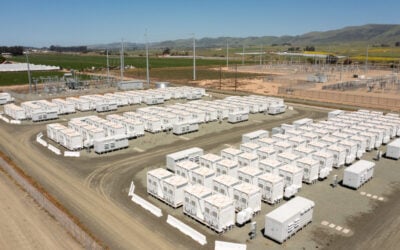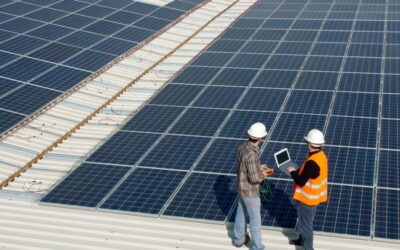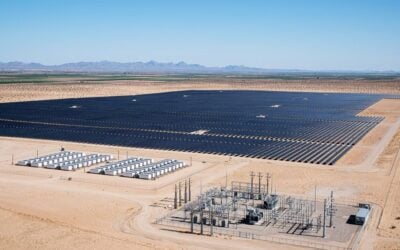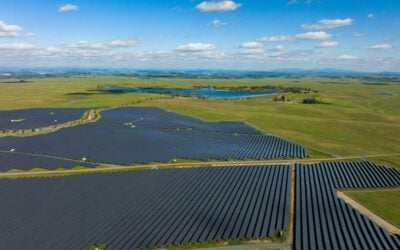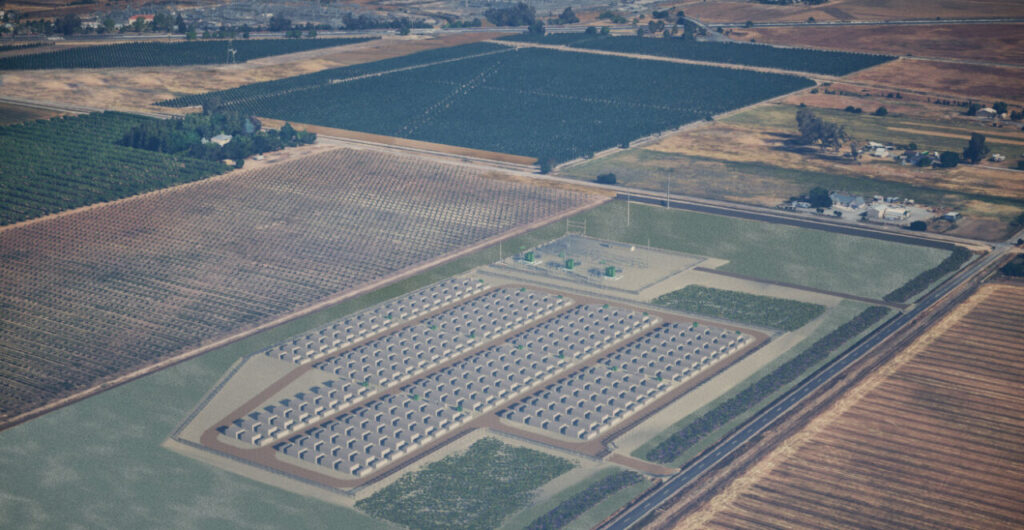
NextEra Energy Resources (NEER) has become the next IPP to seek approval of a renewable energy development incorporating battery storage via the California Energy Commission’s (CEC’s) opt-in process, as permitted under Assembly Bill (AB) 205.
Juno Beach, Florida-headquartered NEER submitted an application with the California regulator for its 300MW/1,200MWh Corby BESS located in the City of Vacaville in Solano County on 4 November, 2024.
Enjoy 12 months of exclusive analysis
- Regular insight and analysis of the industry’s biggest developments
- In-depth interviews with the industry’s leading figures
- Annual digital subscription to the PV Tech Power journal
- Discounts on Solar Media’s portfolio of events, in-person and virtual
The CEC has acknowledged receipt of the filing and is currently assessing whether it deems the application complete before commencing its full review of the independent power producer’s (IPP) proposal.
The application follows in the wake of a 2-year moratorium on new BESS facilities enacted by Vacaville City officials that prevented NEER from obtaining a Conditional Use Permit (CUP) for its Corby project.
384 CATL EnerC+ BESS enclosures
According to the CEC application, NEER’s Corby project is expected to comprise 384 EnerC+ enclosures manufactured by China’s CATL encompassing a 40.3-acre site on the northeastern outskirts of the City of Vacaville.
While the choice of BESS provider would typically be firmed up at a much later stage of a project’s development process, in this case CATL appears a likelihood. Energy-Storage.news understands that NEER is one of a few IPPs with its own in-house system integration capabilities, meaning it can buy directly from BESS manufacturers – and CATL is one of, if not the largest when it comes to supplying system integrators.
The project will connect to the California Independent System Operator (CAISO)-controlled grid via Pacific Gas & Electric’s (PG&E) Vaca-Dixon 230kV substation located to the northwest of the proposed Corby site on the opposite side of Interstate 80.
NEER has already obtained a CAISO interconnection agreement for the project, processed as part of the system operator’s cluster 9 window that opened for applications during 2016 (queue number 1270).
As explored in other articles by Energy-Storage.news, the lengthy process of obtaining an interconnection agreement is one of the main contributing factors, along with supply-chain and procurement issues, causing extensive delays to energy storage projects across the US.
At the point of queue request submission, the commercial operation date (COD) for NEER’s Corby project was expected during 2020. However, according to today’s CAISO interconnection queue, the project is now expected online during December 2027.
NEER has also submitted a second CAISO queue request associated with the Corby development, named Corby 2, covering 400MW of BESS capacity at the same point of interconnection (queue number 1854). This second queue request was submitted in 2021 as part of CAISO’s cluster 14 window that’s still currently being processed by the system operator.
100% of Corby’s BESS capacity under contract
Despite not currently having the greenlight to commence construction of Corby BESS, NEER has been able secure three offtake agreements covering the entire energy storage capacity of the project.
As reported by Energy-Storage.news, NEER first secured a Long-Term Resource Adequacy Agreement (LTRAA) with PG&E covering 125MW/500MWh of energy storage capacity that was approved by the California Public Utilities Commission during 2022.
The remainder of the capacity is contracted with two California Community Choice Aggregators (CCAs) – CleanPowerSF (75MW/300MWh) and Marin Clean Energy (100MW/400MWh) – under two separate 15-year energy storage offtake agreements that were finalised last year.
2-year moratorium on new BESS facilities
NEER first attempted to obtain approval to construct its Corby project in June 2023 when it submitted a CUP application with Vacaville City Council.
However, the application was halted in February this year, after officials at the City of Vacaville enacted a temporary 45-day moratorium on the approval of any new front-of-the-metre BESS facilities.
The city council then extended the moratorium by two years, after it concluded that with its current land use policies, new BESS facilities presented a “current and immediate threat to the public’s safety and welfare”.
Although Vacaville’s moratorium is lengthy, crucially, it doesn’t prevent project’s approved through the CEC’s opt-in process (or projects located behind-the-metre), which has led to NEER’s recent application with the California regulator.
In its application, NEER acknowledged that although the CUP process with Vacaville City Council was halted, it has still incorporated “preliminary input on project design requirements and environmental considerations” suggested by city officials during the preliminary permitting stage.
NEER acknowledged that although the moratorium was enacted due to fire safety concerns, the project would be “designed and operated in accordance with all applicable fire safety standards and regulations”. The IPP also stated that it would “develop an emergency response and emergency action plan in accordance with SB 38 requirements”.
The CEC has 30-days from the date of NEER’s application to decide whether it deems the application complete or not. Once the CEC is satisfied with the application, it has 270 days to approve or deny the project.
CEC offers an alternative permitting route for developers
NEER isn’t the only IPP in recent times that’s turned to the CEC after experiencing delays, or even denials, with local planning commissions.
As recently reported in Energy-Storage.news, Irving, Texas-based IPP Vistra Energy informed local officials at Morro Bay that it planned to pursue approval of a 600MW/2,400MWh BESS via the CEC after experiencing delays with the local planning process. In a statement issued last month, Vistra said that the CEC approval process offered a “more defined pathway for consideration”.
Engie is also pursuing approval of a BESS project with the CEC after the City of San Juan Capistrano rejected a zoning request submitted by the French multinational energy company for the construction of its 250/1,000MWh Compass Energy Storage project.
However, not all developers are turning to the CEC after encountering setbacks, with some choosing to head straight to the California regulator without attempting to gain approval through the local permitting route. As covered in Energy-Storage.news, a JV made up of Capstone Infrastructure and Eurowind is also seeking CEC approval of a 3.2GWh standalone battery project, known Potentia-Viridi BESS, located in Alameda County, California.
Additional reporting by Cameron Murray.


